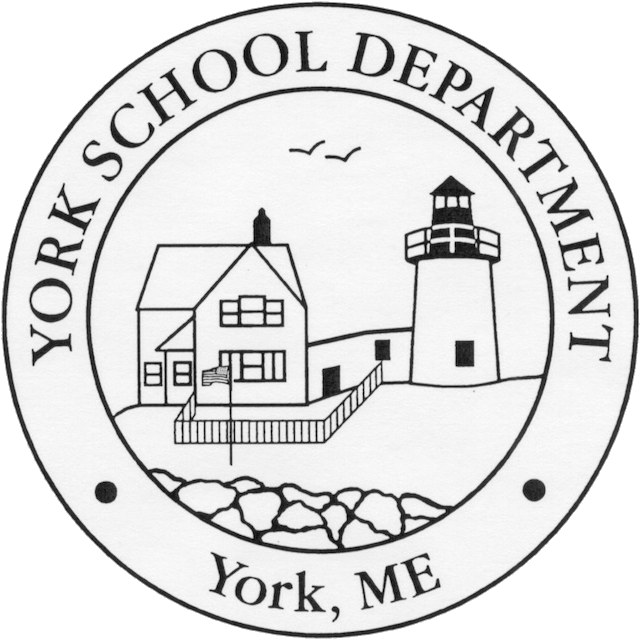Multi-Tiered Systems of Supports (MTSS)
MTSS Includes: TitleIA, Chapter 104/Gifted, and Multilingual Learner Supports
MTSS is a comprehensive framework designed to address each student's academic, behavioral, and social-emotional needs in the most inclusive and equitable learning environment. More than a RTI (response-to-intervention), MTSS is a whole-school framework that organizes the people, programs, and policies into an integrated support system that begins in Tier 1.
MTSS is a philosophy that organizes and leverages the systems that likely already exist in your school. It is a system that relies on more than just evidence-based curricula and identification processes. MTSS analyzes and organizes all available resources within the school context, such as people, facilities, time, data, curriculum & instruction, and any additional help.
MTSS (Multi-tiered Systems of Supports) Slides, presentation to York School Committee, June 2022
"More than just intervention, we are prevention and extension."
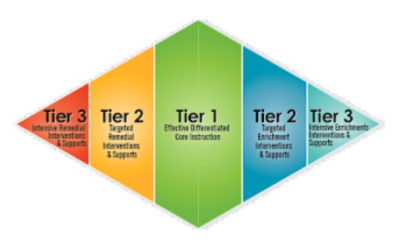
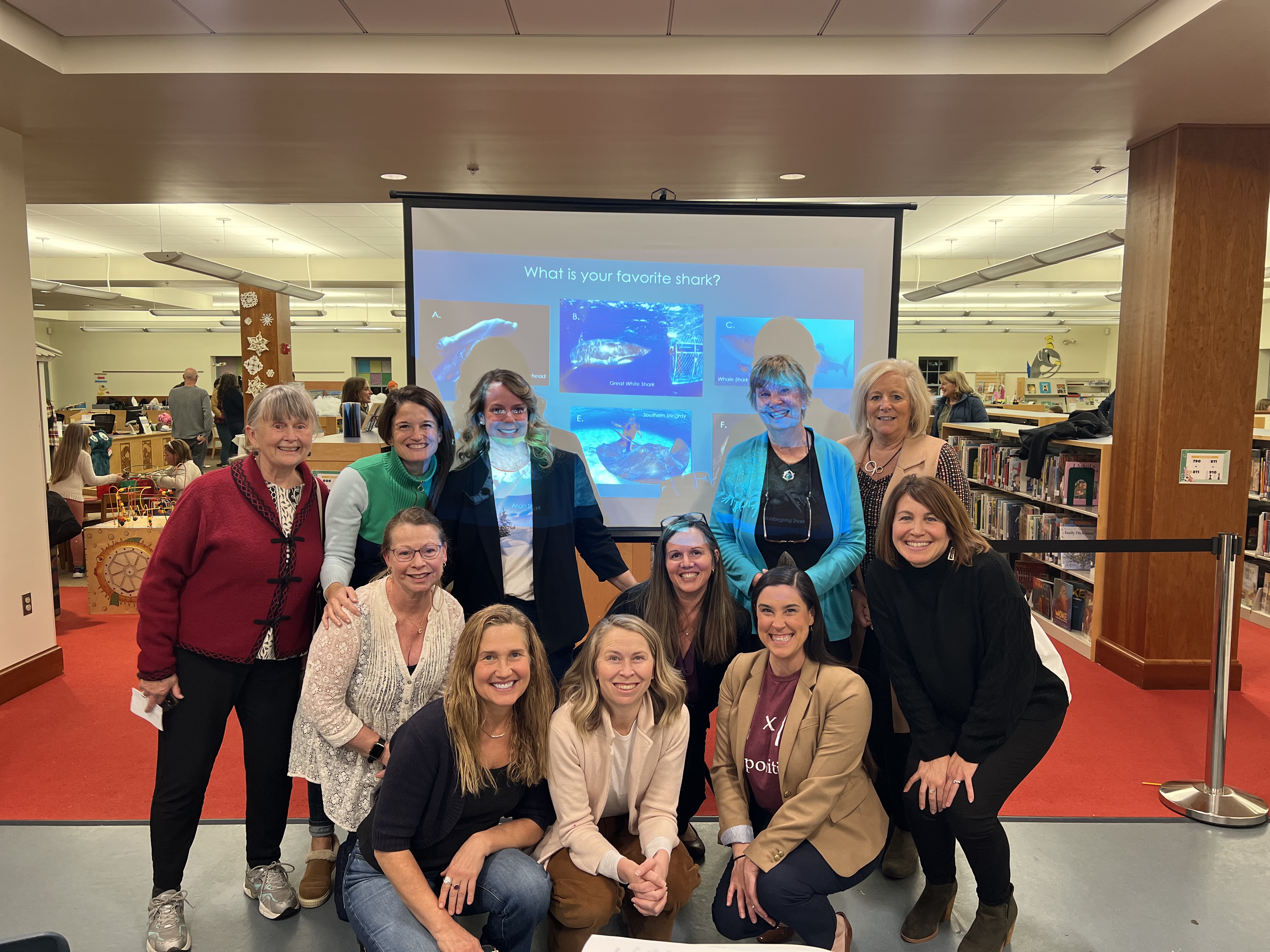
MTSS Team 2023-2024
Title IA & Parents Rights to Know
On December 10, 2015, the Every Student Succeeds Act (ESSA) of 2015 was signed into law. Section 1112(e)(B)(ii) of the law states that any school that receives Title I funds must inform parents if their child is assigned a teacher for four or more consecutive weeks who does not meet applicable state certification or licensure requirements at the grade level and subject area in which the teacher has been assigned.
If you have any questions regarding your child(ren)'s teachers' qualifications, please contact: Ellen Kaschuluk, Ed.D., Assistant Superintendent at ekaschuluk@yorkschools.org or 207-363-3403.
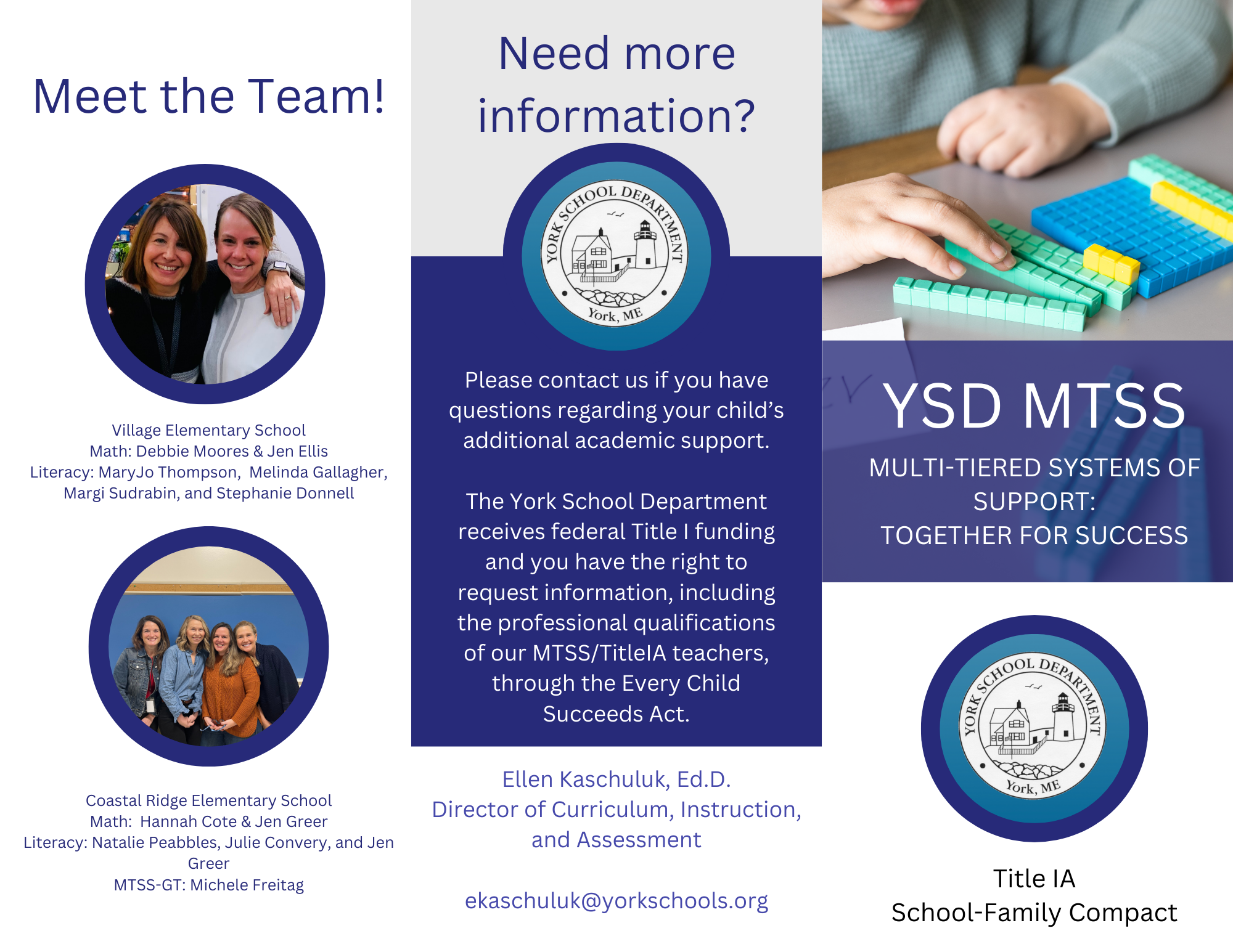
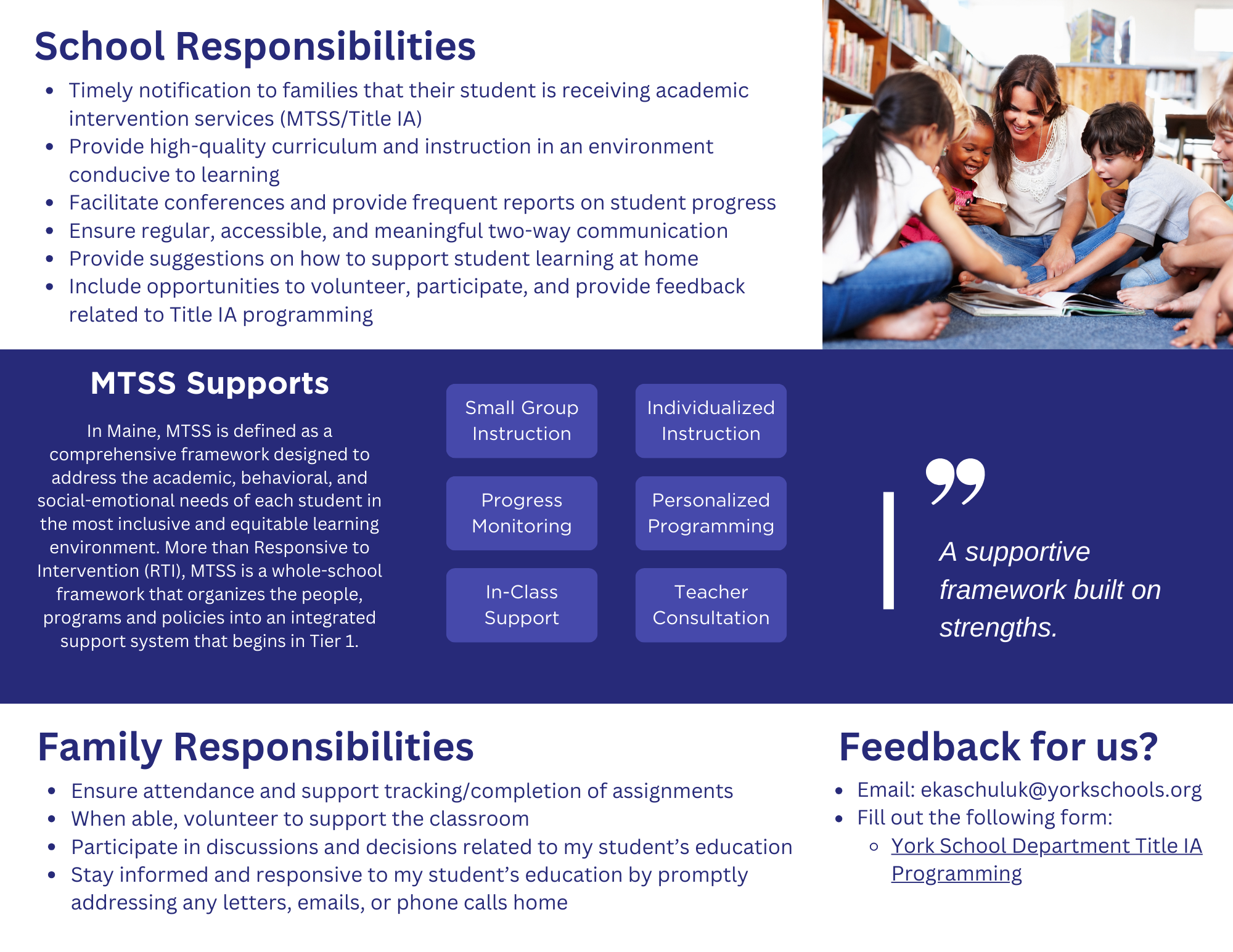
We want to hear from you! Please click the button below to tell us about your experience with our MTSS team.
MTSS-GT: Horizons/Chapter 104 Services
York's approach to Gifted Education aligns with our Vision Statement in that all students “receive an equitable, challenging, and integrative education that encourages appreciation of everyone, values diversity, and fosters intellectual risk-taking, critical thinking, and a sense of belonging.” And like all students, gifted students need differentiation in the classroom environment. Using multi-tiered systems of supports (MTSS), schools can meet the needs of these learners in a deliberate and responsive way. MTSS-GT is a framework that addresses the academic, social and emotional, and behavioral needs of accelerated learners within three distinct levels of instruction and intervention.
Gifted and talented students often require differentiation that is difficult to replicate on a large scale and within regular education settings. Chapter 104 of Maine's Educational Rules states, “Gifted and talented children need to be challenged to develop their abilities and potential; therefore, specialized curricula that are advanced, conceptually complex and carefully differentiated from regular curricula shall be provided in lieu of the regular curricula” (Chapter 104, Part 2, Section 04). Services are also designed to support identified students’ unique social-emotional needs.
Identification for Horizons/Chapter 104 Services with the MTSS Model
Chapter 104 is the rule in which gifted programs are developed and evaluated. Our program supports students within a MultiTiered Systems of Support (MTSS) structure. This is a framework that addresses the unique academic, social and emotional, and behavioral needs of our students. Based on data, including State and local assessment data, the CogAT, and teacher inventories, students may be identified for additional services within this model.
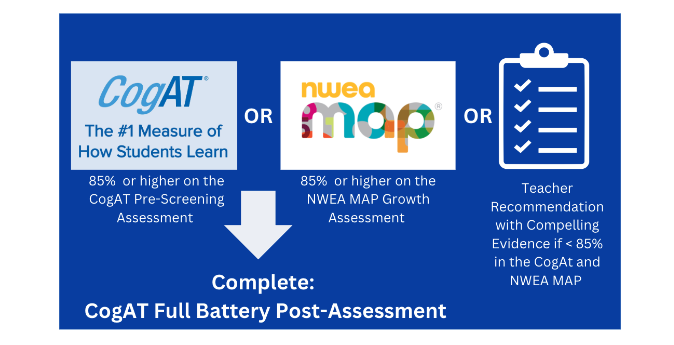
Initial Screening
At the end of second grade, students who perform in the 85th percentile or higher on either the NWEA MAP Growth Assessment or the Cognitive Abilities Test (CogAT) Screener will complete the full CogAT assessment. Data, including the NWEA, results of the full CogAT battery, and teacher inventories are used to make a determination for identification of services.
Students may receive:
Tier 1: Differentiated Instruction within the General Curriculum & Enrichment
Differentiation within the general education setting may include pre-assessment, modifying instruction for depth and complexity, coaching on higher-order thinking, and strategic flexible grouping. Enrichment opportunities may be provided to students based on interest and aptitude.
Tier 2: Targeted Learning Support
A smaller number of high-achieving students may require additional academic support designed to help students extend their learning goals when they have already achieved learning goals in the Tier 1 setting. These supports may be provided by homeroom teachers or other qualified professionals who increase the intensity, depth, or rigor in programming and practice.
Tier 3: Individual Inquiry & Specialized Instruction
In some cases, for students with exceptionalities who are generally in the top 3-5%, programming beyond what is available within the general curriculum setting is necessary. Similar to other special services, this level of intervention may involve significant changes to student learning experiences and is addressed on a case-by-case basis aligned with students’ unique academic, social-emotional, and behavioral needs.
At the beginning of Grade 5, or in the case of a student transfer, students are again screened for Horizons/Chapter 104 services. Similarly to the end of Grade 2, NWEA assessment data and CogAT data is used to make these determinations. Students will receive tiered services as listed above based on their academic profile.
Fraud, Waste, and Abuse Notice
Each recipient of a federal grant under the Elementary and Secondary Education Act (ESEA) of 1965 must display, in a public place, the hotline contact information of the US Department of Education Office of the Inspector General (ED OIG) to ensure that any individual who observes, detects, or suspects improper use of taxpayer funds can report such improper use.
If you suspect improper use of taxpayer funds, can you report it to the US Department of Education Office of Inspector General by CLICKING HERE.
